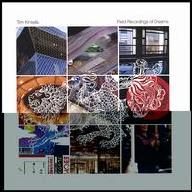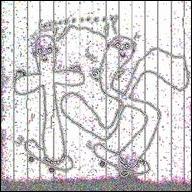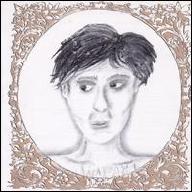The strangely titled Live in Chicago 1999 was produced by Casey Rice and emphasizes emphasizes growing dissatisfaction with the trappings of rock roll. The tape-spliced bits that made Joan of Arc's first two albums interesting rock records now became the predominant melodic device of the music. The album art used illustrations based on Jean-Luc Godard's #Weekend and featured such infamous lines as "We all know monogamy's just a function of capitalism."
The Gap saw Kinsella's once-loyal audience moving away from his increasingly obtuse song structures and live performances. Band members dropped out of the recording process, leaving Kinsella to create the songs as more or less his own studio project. Although Kinsella never formally announced the breakup of Joan of Arc, the band ceased to play just after the release of How Can Anything So Little Be Any More?
Kinsella began work on a solo EP for Troubleman Records and decided that this project would coincide with his name change from Kinsella to Kinsellas. The move was seen by the press as another verbal annoyance the artist began early in the Gap tour when he refused to give interviews. Instead, he would interview the journalist. The EP's title, He Sang His Didn't He Danced His Did, is lifted from e.e. cummings and features brutally out-of-tune acoustic ballads, a Jacques Brel cover, and four songs reworked from Live in Chicago 1999, and How Memory Works.
Kinsella has also lent his strange stylings and unique voice to other projects, including various interchanges of members of an insular scene of Chicago musicians to make up acts like Owls, Make Believe, Friend/Enemy and Everyoned. As a solo artist, Kinsella followed his Troubleman EP with 2005's Crucifix/Swastika and 2009's Field Recordings of Dreams. The 2010's brought the release of Kinsella's first novel, 2011's The Karaoke Singer's Guide to Self-Defense. In 2013, Tim Kinsella sings the songs of Marvin Tate by LeRoy Bach featuring Angel Olsen arrived, a highly conceptual album featuring Kinsella as the narrator of Tate's dark poems in song form. ~ Daphne Carr, Rovi















